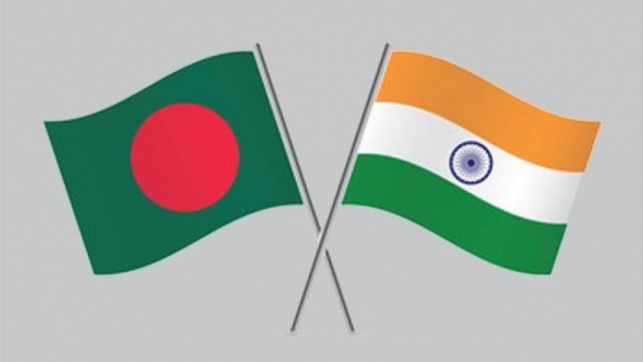Dhaka, Delhi conducting analysis to sign trade deal

Image: Collected
Dhaka and New Delhi are preparing a good joint study report to sign a comprehensive economic partnership arrangement (CEPA) to improve bilateral trade and expenditure once Bangladesh becomes a developing nation.
The government has taken the initiative to ink the offer to safeguard duty privileges in international trade following the country graduates from the grouping of the least-designed country (LDC) in 2024.
Bangladesh Foreign Trade Institute (BFTI) and Indian Foreign Trade Institute are preparing the analysis record, said Commerce Secretary Md Jafar Uddin.
Ali Ahmed, chief executive officer of the BFTI, said, "I hope the BFTI can finalise the draft of the CEPA negotiation by the next two weeks."
The draft was likely to have been complete a few months ago but the coronavirus pandemic has delayed the preparation, he said.
"The CEPA is an extremely comprehensive subject matter and needs a large amount of analysis," he said.
Bangladesh is place to reduce duty preferences found in international trade following the graduation, which prompted Dhaka to start the process to strike free of charge trade agreements (FTAs), preferential trade agreements (PTA), CEPA and other trade plans with trading partners.
Previous month, Bangladesh and Bhutan signed a PTA, the earliest such deal for Bangladesh.
The commerce ministry is working to sign FTAs or PTAs with 11 more countries and trade blocs to take pleasure from trade benefit after graduation.
"Both Bangladesh and Nepal are ready to sign a PTA," Jafar said.
The federal government plans to sign the CEPA with some selective countries.
The CEPA is somewhat different from FTAs since it covers a lot of issues such as trade in goods and services, investment, intellectual property rights and e-commerce, said Jafar.
"Only signing FTA or PTA with India will never be enough since it is a big overall economy. Besides, India provides a big investment in several sectors in Bangladesh. Therefore, Bangladesh needs to indication the CEPA with India," the secretary said.
Bangladesh enjoys duty service in Indian market segments under a good South Asian Free Trade Agreement.
Both countries decided to signal the CEPA throughout a secretary-level meeting this past year.
In September 2018, Indian Commerce Minister Suresh Prabhu and his Bangladeshi counterpart Tofail Ahmed said at a joint press conference that both sides would signal the CEPA.
Mustafizur Rahman, a good distinguished fellow of the Center for Coverage Dialogue, said Bangladesh should include some important concerns like trade and industry gain access to of goods and providers in the CEPA negotiation.
The issues of the investment agreement, production of production network, value chain and mutual recognition of standards and certification should be incorporated so that more goods and services can be traded, the trade expert said.
The transport agreement, the rules of origin, customs clearance, border crossing and logistics should also come to be prioritised in the negotiation with India, this individual said.
Bangladesh and India can also are the environmental and labour benchmarks in the CEPA negotiation.
Some outstanding issues just like Indian anti-dumping duty on Bangladeshi jute and jute goods, countervailing duty on garment shipment, fresh customs rules and lots of non-tariff barriers have been acting as deterrents to increasing the bilateral trade.
The Indian government has allowed Bangladesh the duty-free access on all products, aside from 25 alcoholic and beverage items in 2011. Even so, the export from Bangladesh hasn't increased to an expected level as a result of non-tariff barriers.
Bangladesh exported goods worthwhile $1.09 billion to India and imported $5.77 billion worth of goods in 2019-20.
The federal government has initiated a negotiation with the headquarters of the Association of Southeast Asian Nations (Asean) to sign a regional trade agreement (RTA) in order that Bangladesh can grab more marketplaces in the rising Asian and East Asian market segments.
"If we can sign the RTA with the Asean, we won't need to sign any trade cope with the associates of the bloc separately," Jafar said.
The government is working to improve the labour standards according to the requirement of the European Union to retain the generalised system of preferences (GSP) in the bloc.
The EU has urged Bangladesh to boost labour standards for the continuation of the GSP. The bloc will review the existing GSP in 2023.
Bangladesh's GSP position to the EU might end in 2024. The EU, even so, will continue the same GSP up to 2027 under a three-calendar year grace period.
The commerce, foreign and labour secretaries are working together to improve labour standards, Jafar said.
The other day, the bureaucrat kept a gathering with the officials of the UN Committee for Development Policy and demanded two more years as the transition period.
"We've demanded a changeover period for up to 2026 as our economy has been severely damaged by the fallouts of the Covid-19," he said.
Source: https://www.thedailystar.net
Tags :
Previous Story
- The future of mobile financial services in Bangladesh
- Zapping COVID: Tech sector calls for aim in...
- Turkish Airlines fined Tk 3 lakh for bringing...
- SME Foundation to create business incubation centres
- Apparel task uncertainty on the wane
- Belgium's King considering go to to Bangladesh
- WhatsApp delays updated online privacy policy after confusion...
- Huawei to build major store beyond China in...